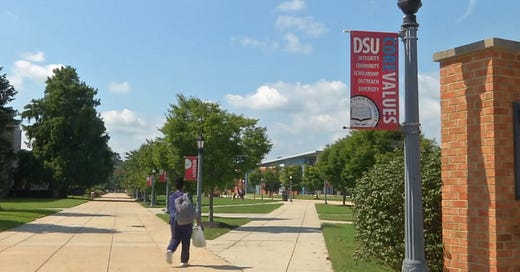Study Shows Basic Needs Insecurity Among HBCU Students
From Diverse Issues in Higher Education
Historically Black colleges and universities (HBCUs) have grappled for decades with state and federal underfunding while educating many low-income students of color. But the pandemic has disproportionately hit the very communities they often serve.
To experts and HBCU leaders, a new survey’s findings highlight the need for more support to students as well as institutions to help them. In its latest report, The Hope Center for College, Community, and Justice, a nonprofit research and advocacy organization at Temple University, found that two-thirds of HBCU students in Fall 2020 had experienced basic needs insecurity.
With a 8.3% response rate, about 5,000 students at 14 public and private HBCUs participated in the survey. Nearly one-fifth of students reported they had been homeless in the past year. About 46% of respondents said they had experienced food insecurity in the past 30 days.
Institutions in the #RealCollegeHBCU project’s inaugural cohort include Paul Quinn College as well as Delaware State University (DSU), a public land-grant HBCU.
Like many institutions, DSU raised emergency funds for students facing housing and food insecurities when the coronavirus first hit the country in Spring 2020. Carlos Holmes, director of news services at DSU, said that staying attentive to students’ holistic needs has been critical throughout the pandemic—and will continue to be so. Said Holmes …
An important lesson to be learned from this is to be cognizant of your students’ needs, even when you’re in the midst of a pandemic. It’s about a lot more than just making sure they’re taking their classes.




